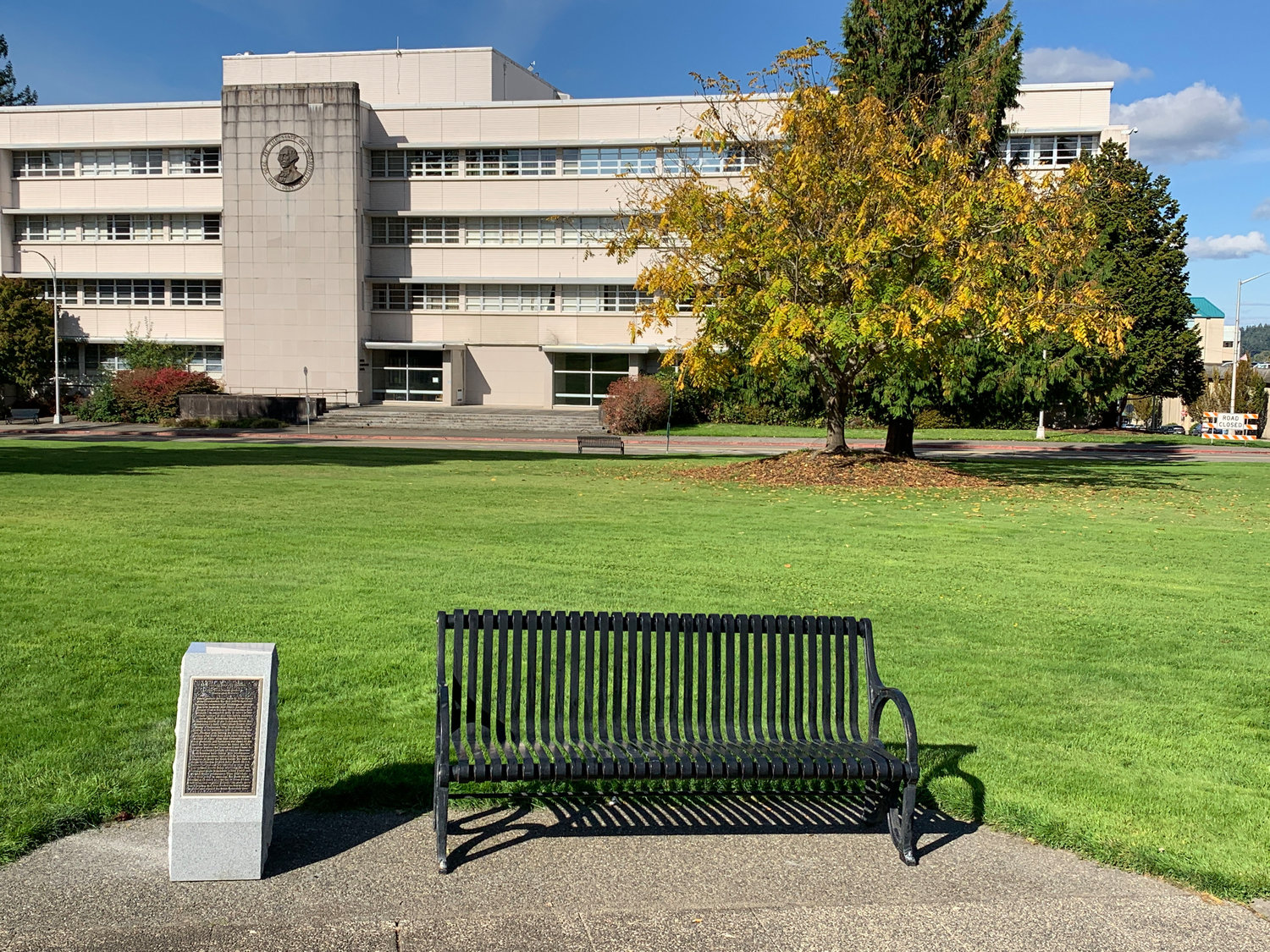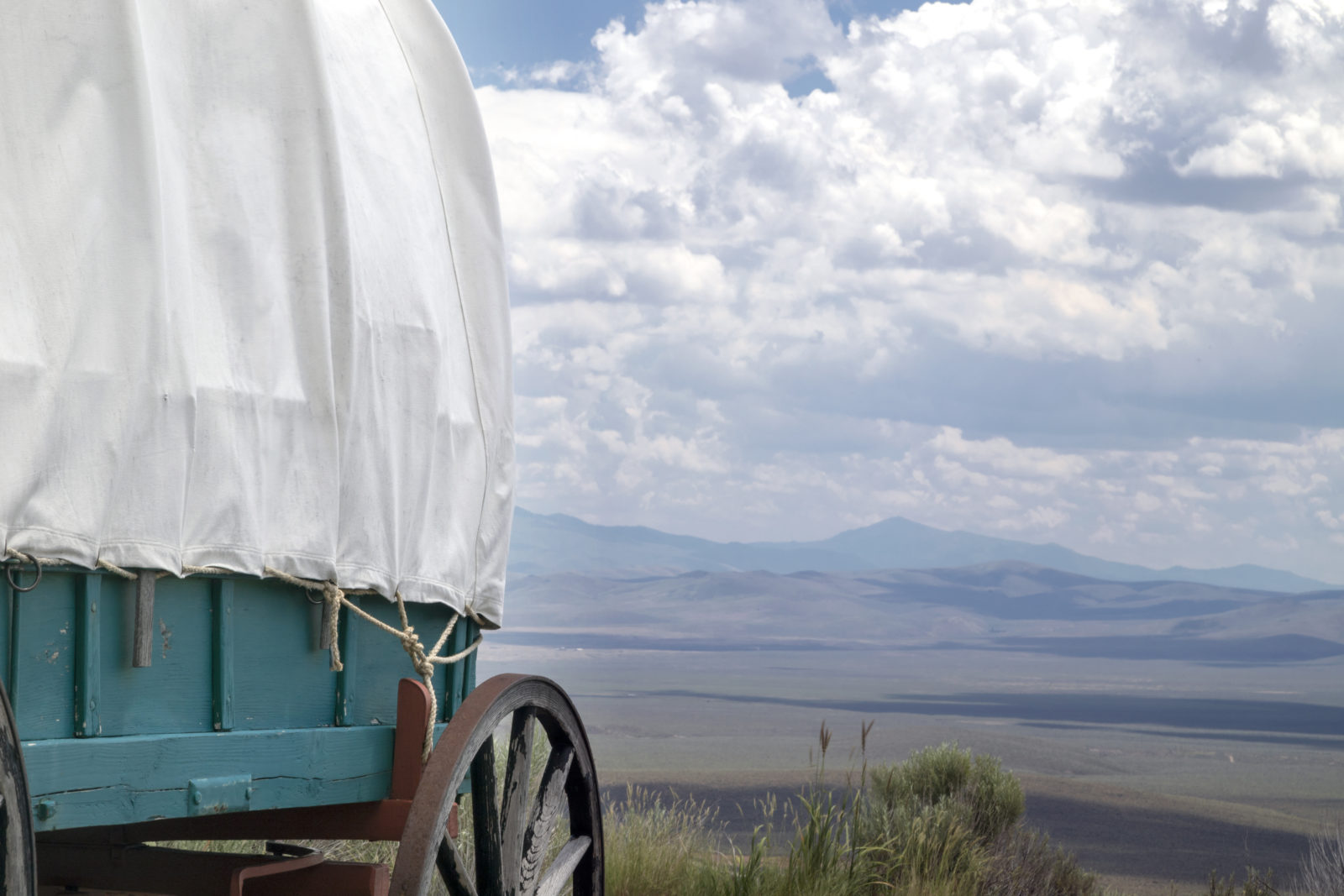Washington State History Often Neglects this Heroic Puget Sound Country Pioneer
Test yourself: who was he? In most ways he was a self-made man, a well-to-do farmer from Missouri who assisted other frontiersmen on the Oregon Trail. Most noteworthy, he was the determinative leader of the first pioneer settlement in Puget Sound country in 1845. His homesteading helped the United States establish the future national identity of this whole region. One of his sons, William, was a state legislator who introduced the bill that created Washington State University in Pullman.
His homesteading helped the United States establish the future national identity of this whole region.
Hospitable, smart, manly, he conquered such daunting adversity in nature and society that we should see him as an exemplar among the early pioneers. Yet he makes only a small appearance in history books. Paul Thomas wrote a fine master’s thesis about him at the University of Washington 30 years ago, but there apparently is still no published book on this remarkable pioneer–George Washington Bush.
In truth, the life of George Washington Bush has the makings of an exciting novel or a Hollywood film. In 1975 it inspired a series of state-comissioned paintings by one of the nation’s best loved artists, Jacob Lawrence. But the Bush story is still waiting adequate recognition. There is no statue of him, that I know of, anywhere. This is a shame, because much of the drama of George Washington Bush’s life lay in what he overcame while making his mark. He was seeking neither fame nor fortune, he was seeking respect. In the nearly all-white pioneer West, George Washington Bush was black.
Much of Bush’s early life is still wrapped in confusing accounts. It appears most likely that he was born free, not slave, around 1790, the offspring of a black West Indian sailor and an Irish maid in the home of a prosperous Pennsylvania family. He was given some schooling and broad experience in outdoor life. Despite a Quaker upbringing, Bush saw military service with Andrew Jackson at New Orleans in 1815 and was wounded in the Black Hawk Indian War. At some point in the 1820s he is said to have trapped and scouted the West, all the way to Puget Sound. Back in the East, he married Isabella James, a white woman from Tennessee, and raised a family of ten sons, six of whom survived.
In the 1830s Bush built a successful cattle business, first in Illinois and then in Missouri. But he never was allowed to forget his skin color or the lack of legal rights that resulted from it. Southern states practiced slavery, of course, but even Northern states were passing anti-Negro laws. Aged 50 or so, and determined not to live any longer as a second class citizen, Bush in early 1844 helped organize and finance a wagon train to the new Oregon Territory.
Along the perilous way West, Bush confessed to John Minto, a white friend, that if he was not accepted in Oregon he would move on, possibly to California, which was still governed by Mexico. When they arrived in Washougal, near Fort Vancouver on the North shore of the Columbia, Bush found to his dismay that the Oregon Provisional Government, too, had just enacted a Black Exclusion Law. At least in theory, it barred him from residence, on pain of a flogging.
Perhaps in practice Bush would not have been mistreated under the anti-Negro law. Yet it was plain that having come so far he would not tolerate a law that did not tolerate him. To their everlasting credit, many of the whites Bush had befriended on the wagon train, including Michael T. Simmons, later founder of Tumwater, decided that if Bush could not settle in Oregon, neither would they. In 1845, the Bush-Simmons party pushed along the Columbia River by boat, then up the Cowlitz River and over foot trails into the densely forested Puget Sound country Bush had explored years before.
Other pioneers described how the skillful Bush made his large frontier farm prosper. Then he helped newer settlers to get through their first rough winters, giving away the produce he couldn’t sell. When smallpox ravaged nearby Indian camps the Bushes reportedly took in some orphaned children and raised them until they were old enough to return to their tribes. Bush’s benefactions also had a political effect, though he probably did not intend it. By moving into contested territory and starting a permanent pioneer community where the British Hudson’s Bay Company had held sway, he helped the United States to assert possession of what is now western Washington.
Yet, ironically, Bush never obtained the elemental right to vote in the nation he so critically assisted. He died in 1863, just after Lincoln’s Emancipation Proclamation, but before adoption of the equal citizenship amendments to the Constitution. He did gain legal right to his own land in 1855 after Congress granted a special petition from the new Washington Territorial Legislature. Among other things, the petition pointed out that Bush “has contributed much towards the settlement of this Territory, the suffering and needy never having applied to him in vain for succor and assistance…”
It was his greatest triumph in combating racism that the struggle did not make him bitter. It made him a humanitarian, admired by his fellow pioneers–and respected. In Black History Month, when there are so many stories recounted of distinguished African Americans from thousands of miles away, here is an historical figure especially relevant to the Pacific Northwest.

Fortunately, the Thurston County Historical Commission is planning a small Bush Family Interpretive Park, with an historical kiosk, at Bush Prairie, a few miles from the state capitol in Olympia. If you’d like to contribute to this over-due testimonial, you can reach the commission at 1-800-624-1234, extension 5222.
